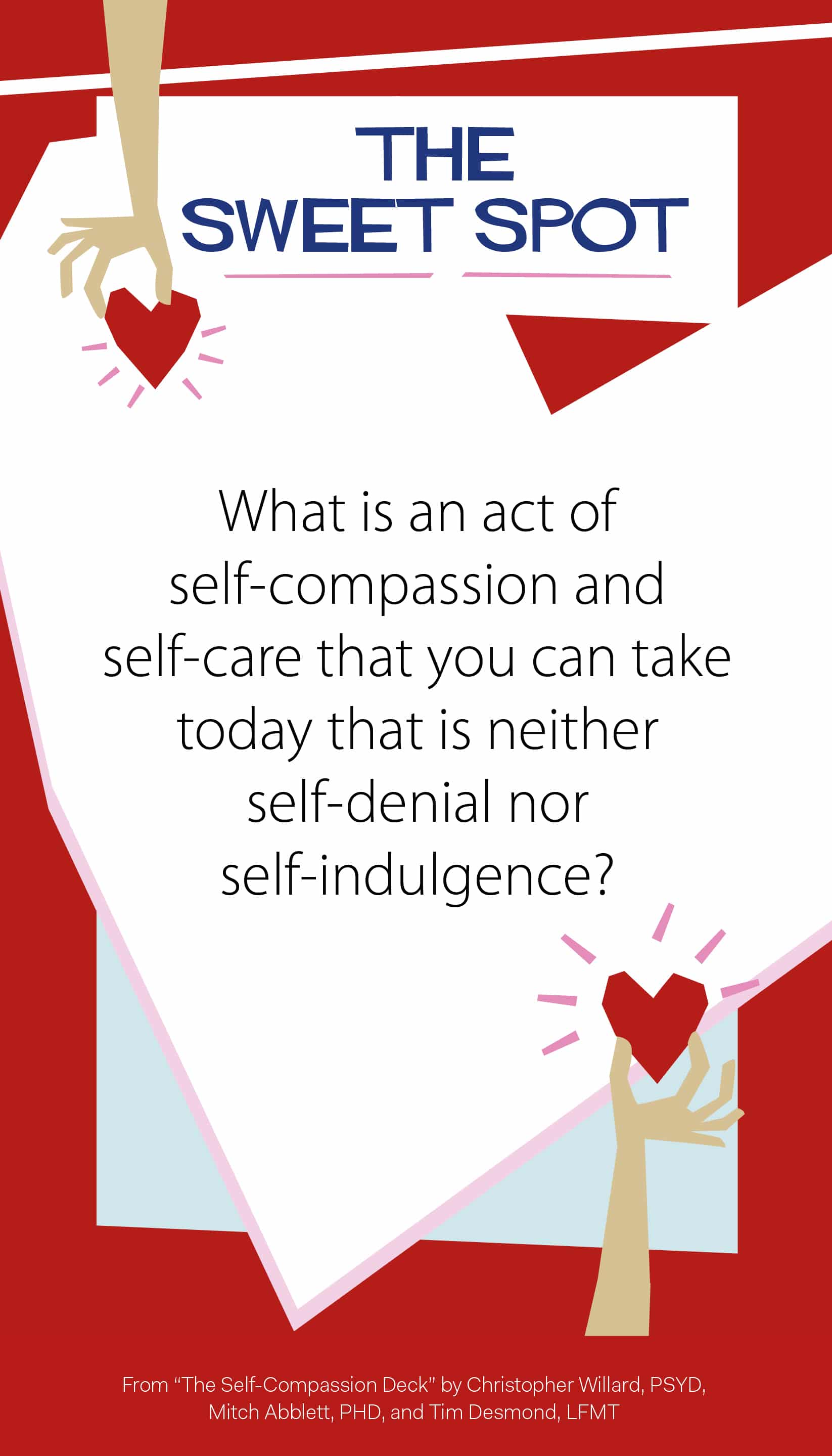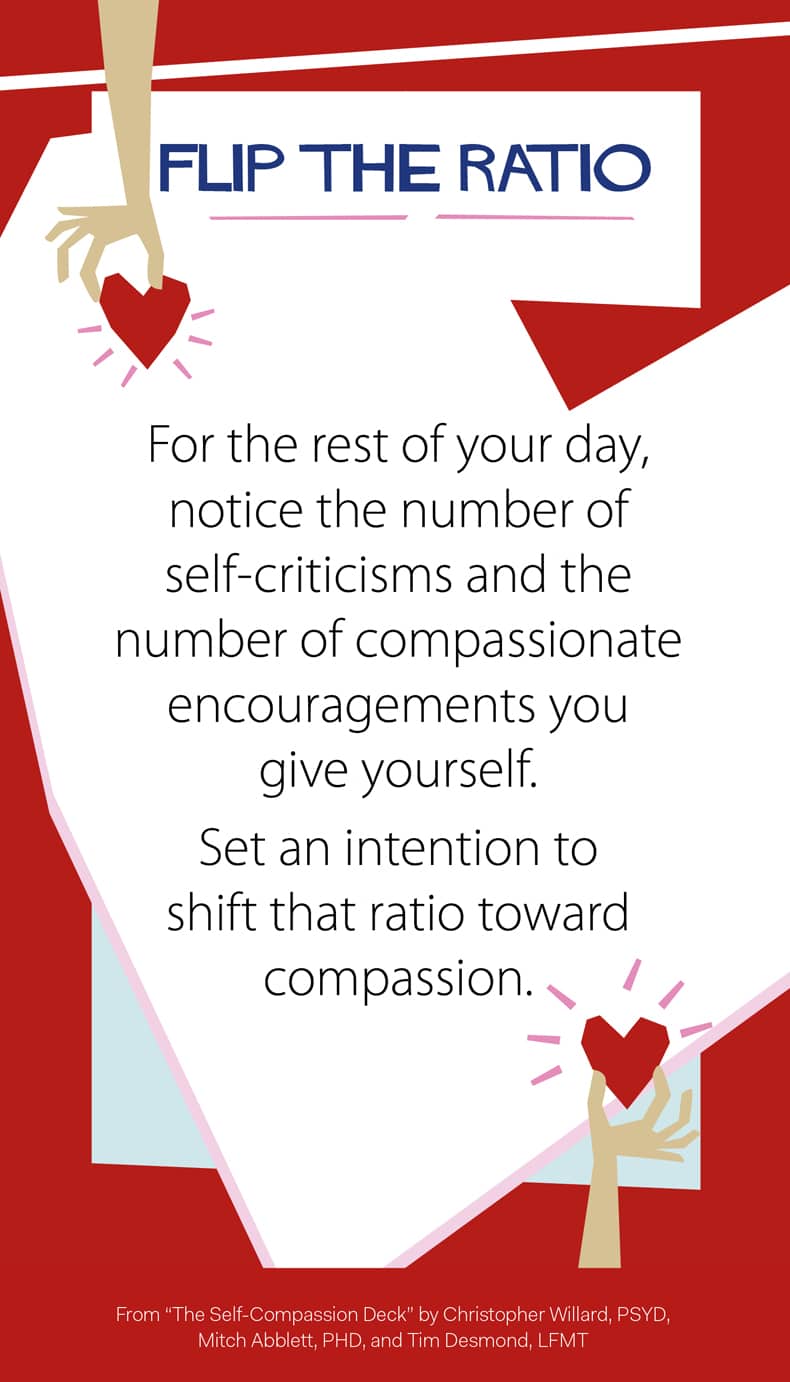In the hustle to create the ideal holiday season, giving ourselves some self-kindness can actually help us be more present for others.
It’s that time of year when self-criticism runs rampant! As the holiday season approaches, we often find ourselves comparing against friends, family, and colleagues, as well as against our previous and future selves, which can lead us to feel inadequate. In Charles Dickens’ renowned Christmas Carol, the miserly Ebenezer Scrooge learns the importance of gratitude and connection with those around him. Why not take a lesson from Dickens and practice kindness not only toward others but also toward ourselves this holiday season?
As a mental health professional, I’ve learned to identify and address the damaging habit of negative inner dialogue that can cause us distress. Rumination—essentially, dwelling on negative thoughts—has been linked to the persistence of depressive and anxiety disorders. Research indicates that individuals who tend to ruminate about their sadness are more likely to experience increased depressive symptoms later on. By fixating on our perceived flaws, we miss out on living fully and enjoying the festive season.
By fixating on our perceived flaws, we miss out on living fully and enjoying the festive season.
And it’s not only my clients who struggle with negative self-talk; I can also find myself trapped in this cycle. For example, I might repeatedly tell myself that I’m “a complete failure” for momentarily losing focus during a therapy session or harshly criticize my future self over a small mistake I made recently. Rumination can become a cycle of toxic self-talk, which is detrimental to our mental clarity and overall well-being.
So, how can we tackle rumination? A powerful way is through self-compassion. Self-compassion goes beyond mere wishful thinking. Psychologist Kristin Neff defines it as being kind to ourselves (instead of judging ourselves), recognizing our shared experiences (instead of feeling isolated), and being mindful (as opposed to being overwhelmed by negative feelings). Self-compassion allows us to view our struggles as part of the common human experience, acknowledging our worthiness of care and kindness. Plus, it’s not merely a weakness, nor self-indulgence; it requires courage and has been shown to significantly reduce anxiety, stress, depression, and perfectionist tendencies. Practicing self-compassion opens us up to fully experiencing life, in contrast to rigid patterns of self-criticism that shut us down.
A study conducted in 2010 with 271 undergraduate students indicated that those who reported higher levels of self-compassion were less likely to experience anxiety and depression. This suggests that cultivating self-compassion may help mitigate the impact of rumination. In the upcoming practices, we’ll explore ways to lessen rumination and grant ourselves and others the grace needed to enhance clarity and ease this holiday season.
Overcome Self-Criticism: Three Mindful Practices for Self-Compassion
The following simple self-compassion exercises are adapted from my co-authored card deck, “The Self-Compassion Deck,” created with fellow clinicians Chris Willard and Tim Desmond (PESI Publishing & Media). Here are three exercises from our deck designed to help you navigate past self-judgment and rumination, fostering a space for compassion—especially crucial during the holidays!
Much like other mindfulness practices, these need to be done in a peaceful environment, while sitting comfortably yet alert. Start by taking a few slow, deep breaths, then read through the three exercises sequentially. Allow yourself a 30-second pause with each one.
Pay attention to what comes up in your mind and body as you reflect on the words and their deeper meanings for each exercise. Be mindful of any rumination that arises, and gently redirect your focus back to the exercise and its self-compassionate goals.
1) Send kind thoughts to your past and present self
Pause and reflect on what it means to send kind wishes to yourself at different points in your life. Which periods make it easier or harder for you to feel self-kindness?
2) Engage in a self-care activity

Consider what actions you could take today that genuinely nurture yourself. Do feelings of doubt immediately surface? Any “yes, but…” thoughts? Are you ready to thank your mind for sharing these distractions and still choose to engage in your self-care action?
3) Monitor your criticism vs. encouragement of yourself

You might consider tracking how often you criticize yourself versus how often you offer encouragement—this could be your self-compassion act for the day. Seriously, keep a tally on a piece of paper or in a journal. Being candid and willing to observe this closely is a powerful act of self-kindness. We rarely dedicate this kind of time to ourselves amidst our busy lives. Rather than counting all the tasks on holiday to-do lists, why not tally how you interact with yourself?


